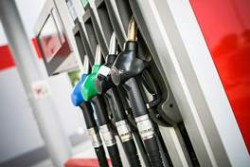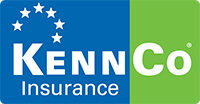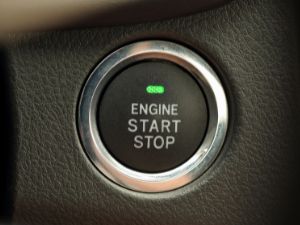Reduce your Costs by Increasing Car Fuel Efficiency
Keeping a car on the road can be expensive. Motor tax, insurance and car maintenance all add up on a yearly basis. Taking a step back to see where you can save is always worthwhile. Shopping around
1. Keep Your Tyres at the Correct Pressure
Keeping your car tyres properly inflated is not just for safety purposes. It also helps to increase your fuel efficiency. You should check your tyre pressure at least once a month to make sure they’re at the correct pressure. If not, you can go to your local fuel station, where you can inflate your tyres for free.
2. Don’t Spill
When you’re topping up your car with fuel, don’t pull the fuel nozzle away too early. We’ve all left a fuel station at some point with diesel/petrol stains streaming down the side of our car. When you’ve finished pumping fuel into your car, allow a few seconds for the remaining fuel in the hose to pour into your car instead of onto the ground!
3. Is your Air Filter Clean?
Your air filter might not be something you think about very often, but dirt and dust can build up in your filter and prevent it from working at its best. Having a dirty filter can reduce the efficiency of your engine so if you’re driving in a dusty environment often, get it checked.
4. Get in Gear
If you’re increasing your speed, increase your gears to reflect this. Driving at a higher speed using a low gear can dramatically increase fuel consumption. Most new cars come with shift indicators that tell you when the most efficient time to change gear is. You should shift to new gear at approximately 2.000 RAM or follow the quick guide below:
1st Gear Taking Off
2nd Gear 10-20 kph
3rd Gear 30-40 kph
4th Gear 40-50 kph
5th Gear 50+ kph
5. Take the Weight Off
If you’re home from golfing or shopping, the sooner you take your golf bag or groceries out of your car, the better. By decreasing the load, your car has less work to get from A to B. Keeping your boot empty is not the only way to do this, don’t forget to remove the roof rack and bike holder when you’re not using them too.
6. Are You Cool Enough?
Turn off the air conditioning system if you don’t need it. Fuel efficiency reduces when the air conditioning is on, so when your car is at the right temperature, turn it off and keep the windows up.
7. Stay Smooth
Try to think of the journey ahead. If you’re approaching traffic lights, don’t speed up and then decelerate quickly. Accelerating and breaking quickly is not an efficient way to drive your car. If you stick to a smooth speed, it puts less pressure on your car and keeps your fuel tank fuller for longer.
8. Two for One
If you’re heading to the shop for milk and picking up the kids from school in two hours, try to combine your trip instead of doubling your fuel consumption. It might not seem like much saving, but it adds up over time.
9. Shop Around
At the start of the year, diesel prices varied from €1 to €1.16 per litre across Ireland. If you’re filling your car up (although it’s more efficient if you just half-fill it), that difference adds up. It’s a good habit to keep an eye on different fuel prices, even when you’re not buying, to get a general idea of the cheapest fuel provider in your area. But travelling 50 kilometres for slightly cheaper fuel isn’t the most fuel-efficient approach you can take!
10. Turn It Off
Don’t leave your engine on if you’re stuck in traffic for a long time. Your engine uses extra fuel when it starts however, if your car is idle for over a minute, it burns more fuel. So if you think you’re going to be there for a while, switch it off. In recent years, car brands have fitted their cars with a stop/start device that automatically shuts your car off when you’re in idle traffic.
11. Use Cruise Control on Motorways
Cruise control can aid fuel efficiency when driving on a constant flat surface which is perfect for motorway driving. It helps save fuel as you are driving at a constant speed. Although be aware that you should not use cruise control in wet weather or run the risk of aquaplaning.
12. Remove Roof Bars
You should remove them if you don’t need roof bars or boxes. They can cause wind resistance, and this will lead to you using more fuel as your car is dragging. The faster you drive like this, the more fuel you will ultimately use.
13. Clean Out Your Boot
Car owners tend to hoard things in their car boots, which starts to build up. All that added weight is slowing down your car. You will have to drive harder and thus use up more of your precious fule. Only take essentials that you need in your boot. Remove any items that you are not using.
Another way to reduce fuel costs is by switching to a hybrid or electric car. Read our article on realistic alternatives to diesel-burning cars.

